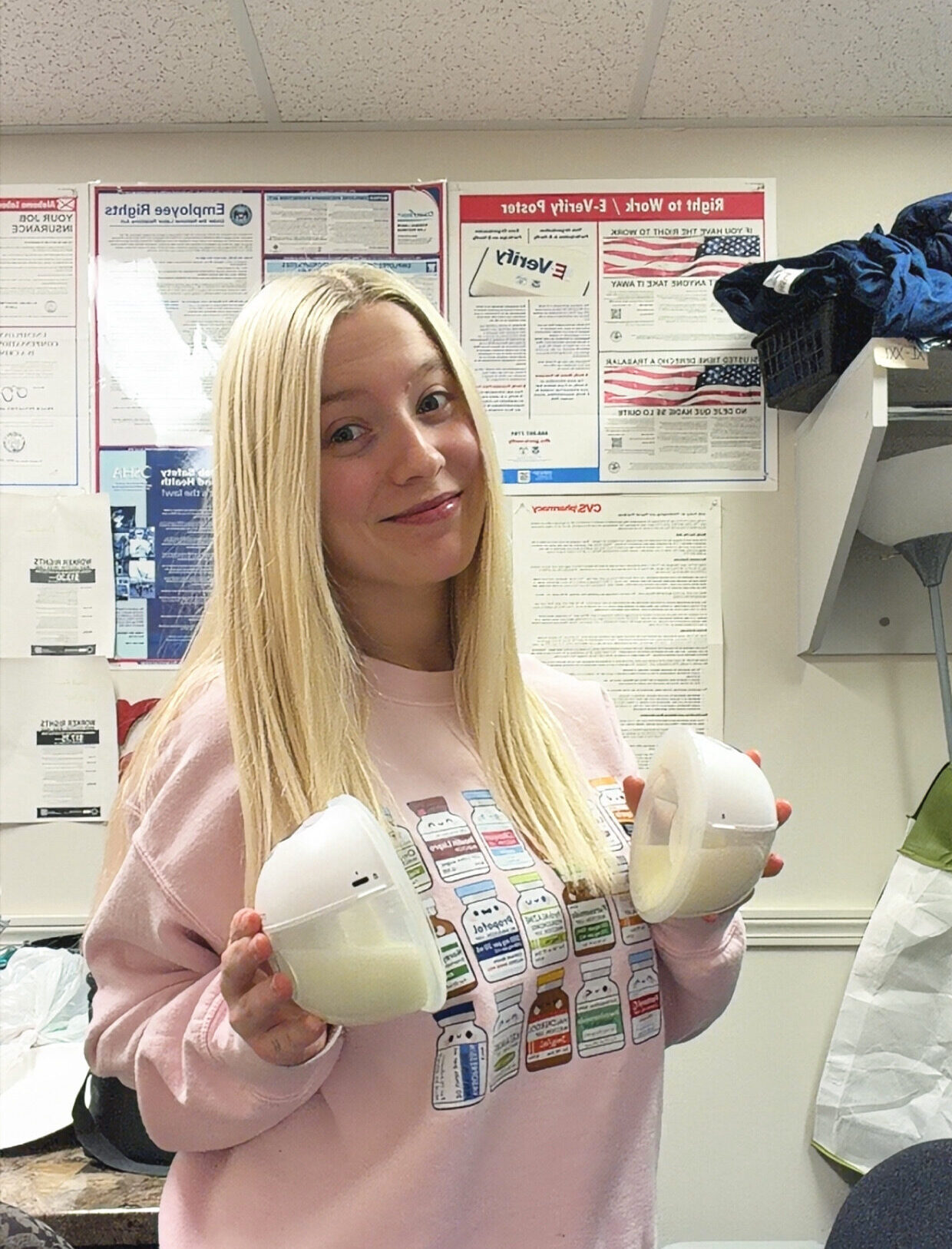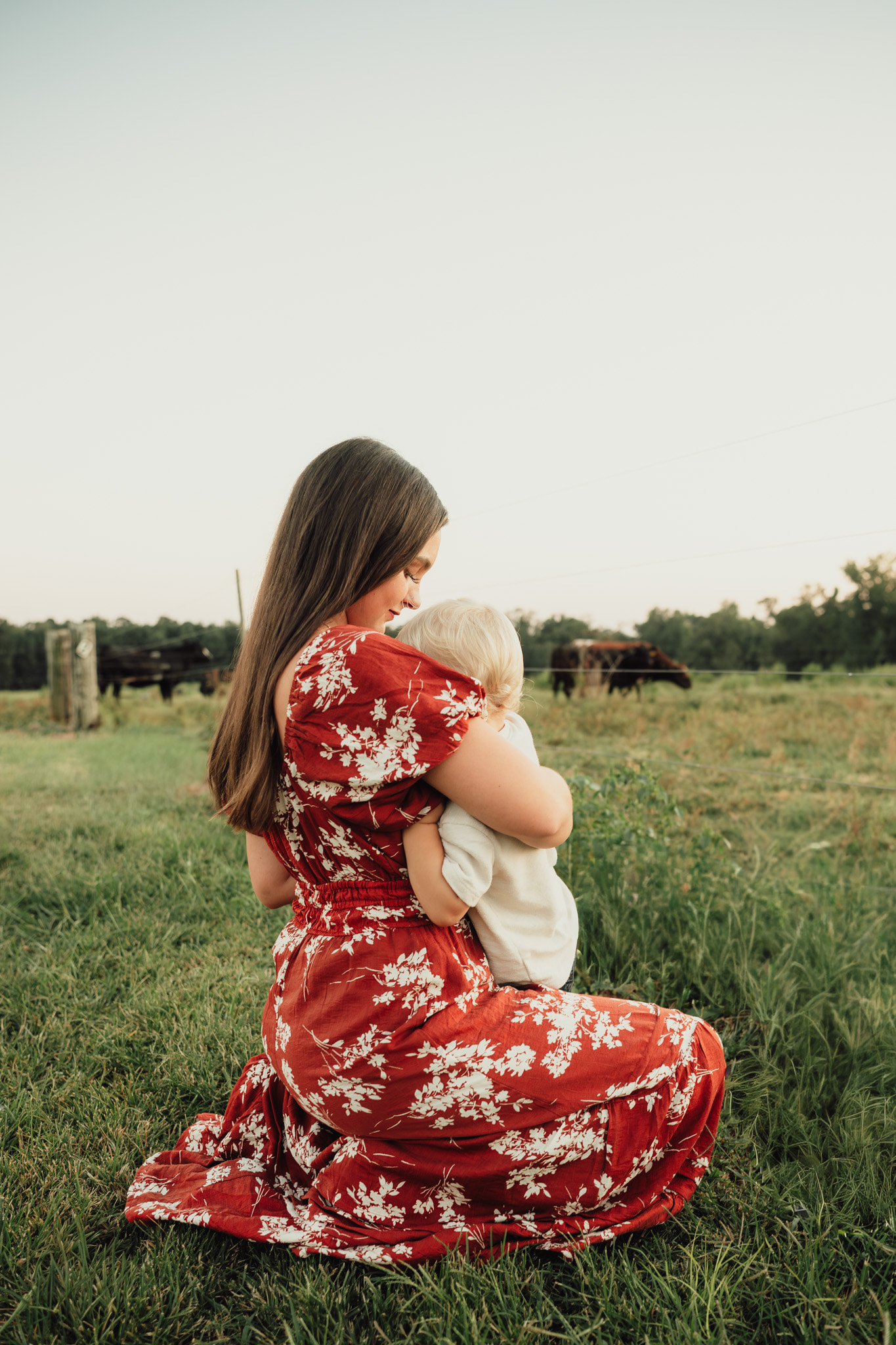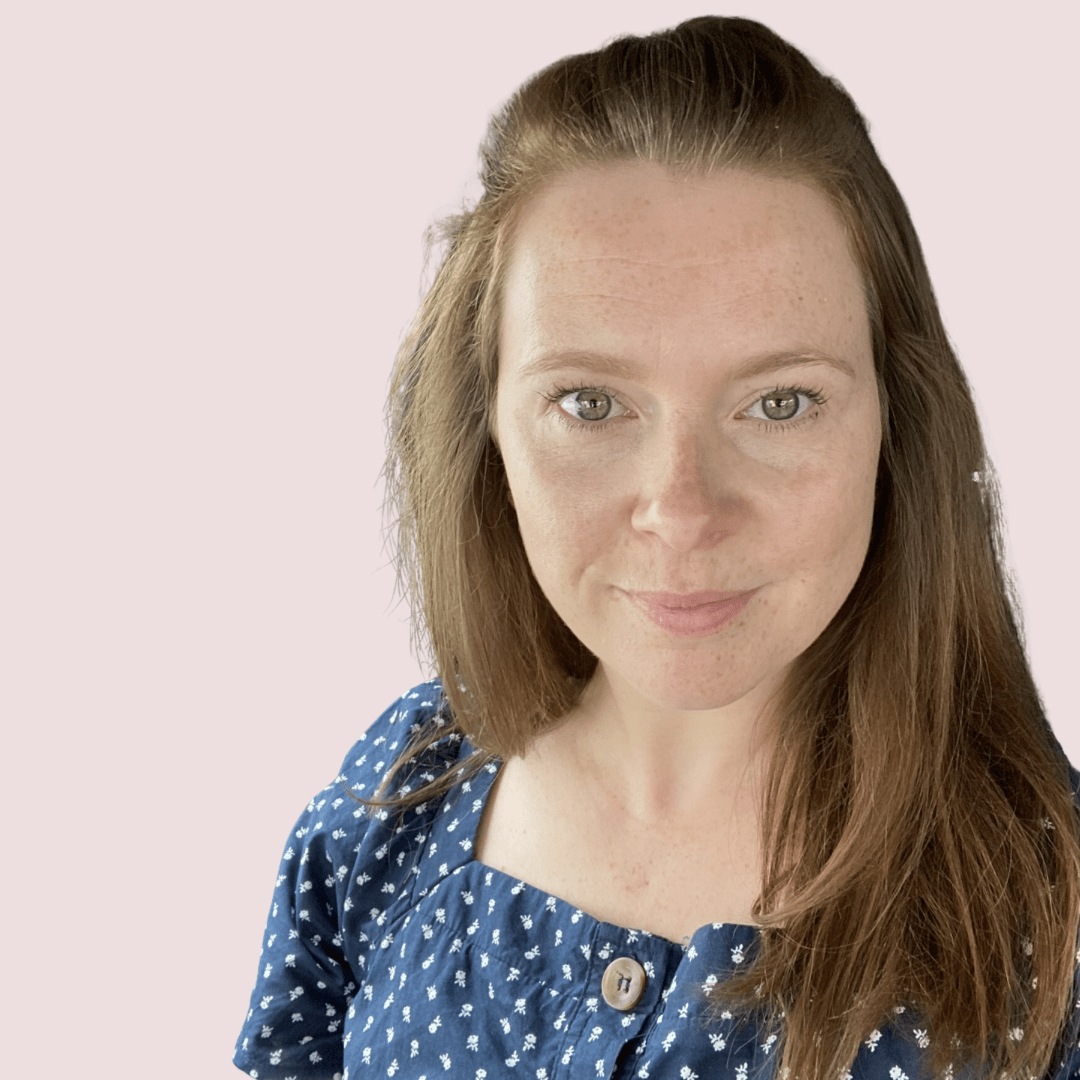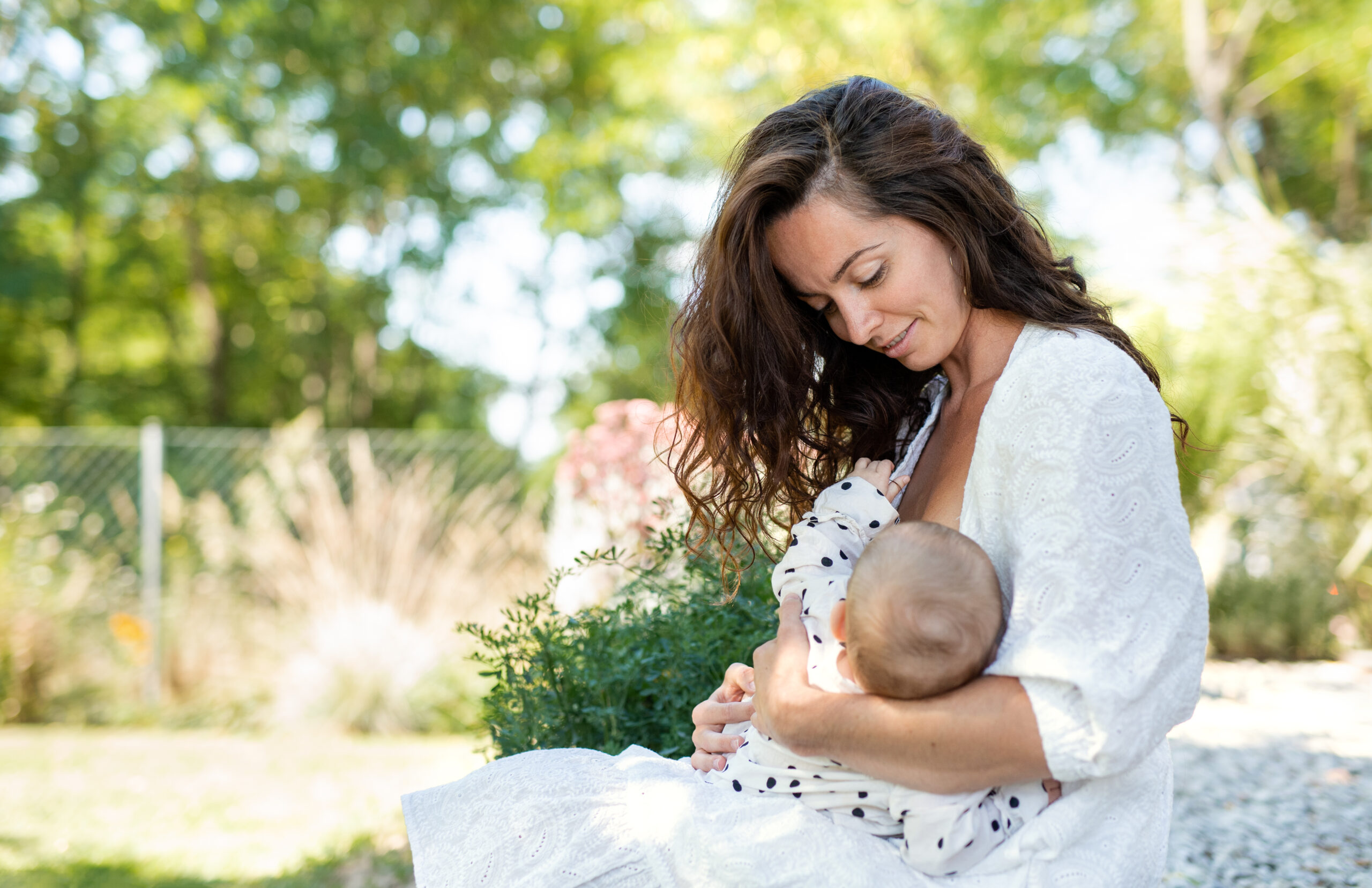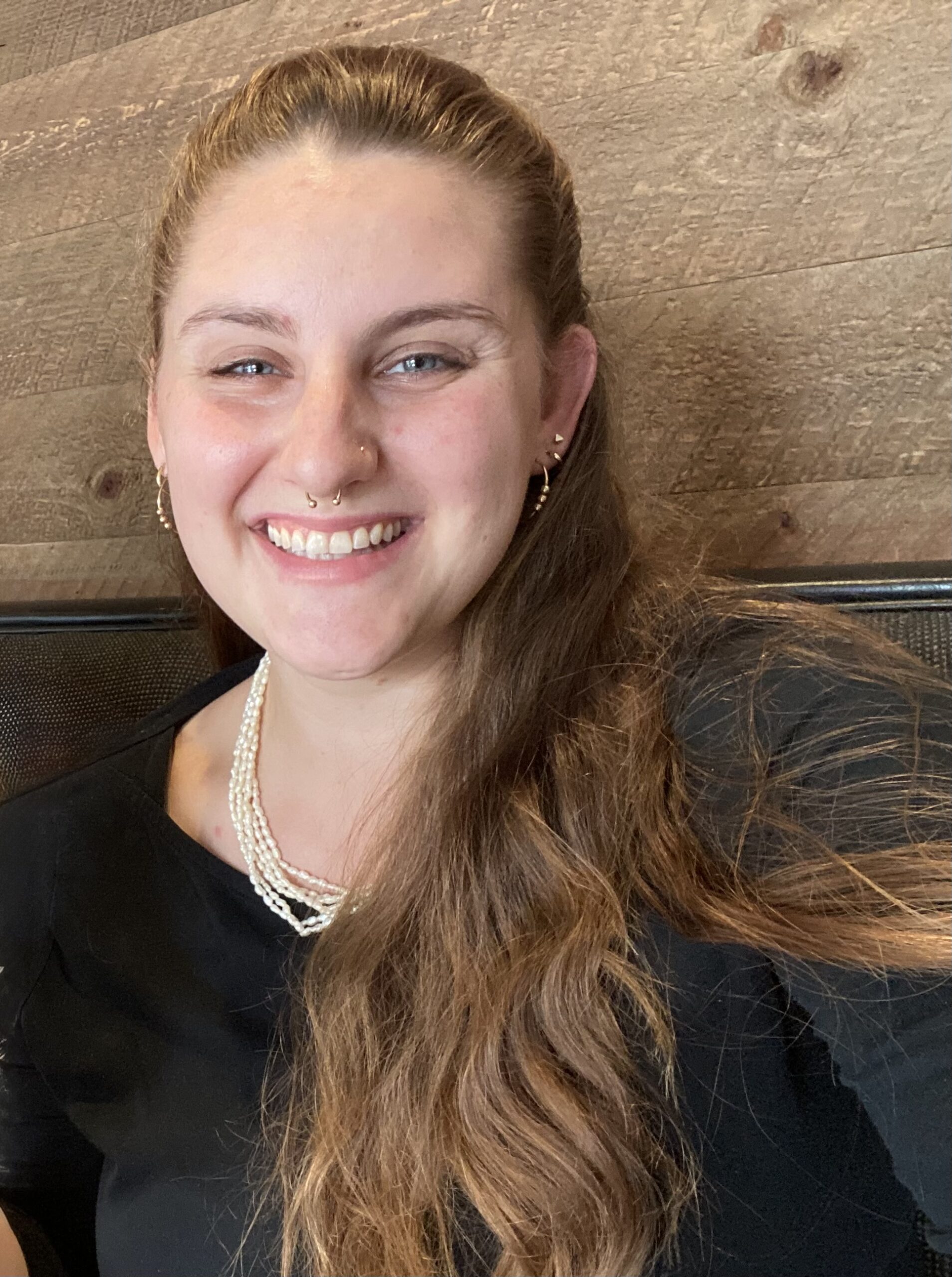The subtle undermining of breastfeeding has been used by formula companies and manufacturers of bottle-feeding equipment since formula was invented. It’s not a new tactic.
However, some of the undermining tactics are no longer subtle, they are blatant!
Isn’t that correct Tommee Tippee!
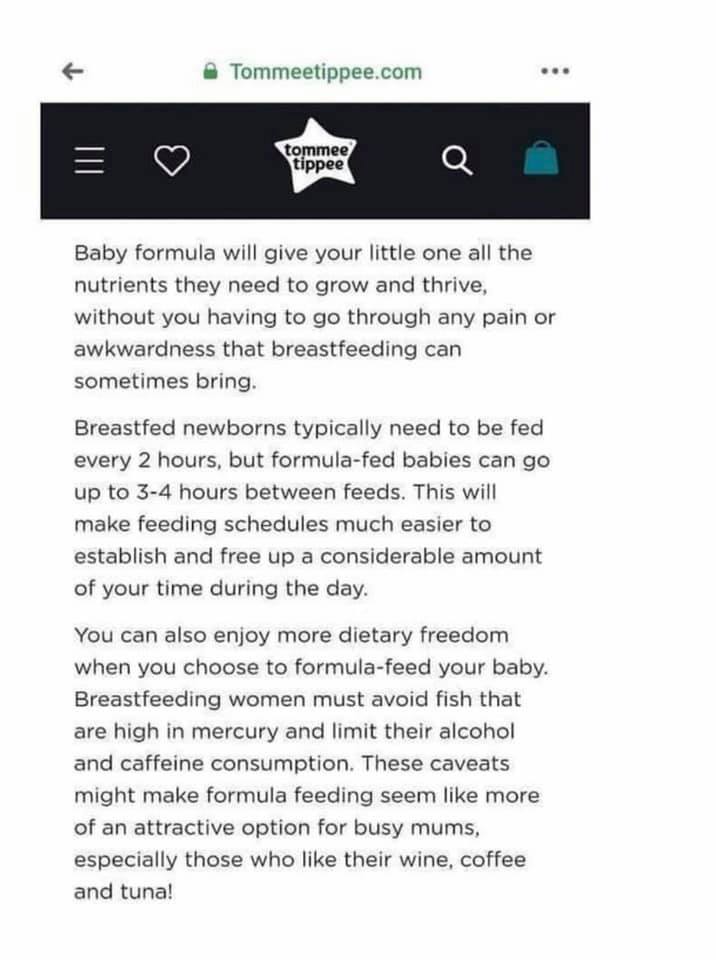
This week several pages published by Tommee Tippee have circulated on social media, causing mass uproar – and we can hardly be surprised when we look at its content. It’s misleading in part and completely inaccurate in others. It degrades breastfeeding and is completely biased.
It’s misleading in part and completely inaccurate in others. It degrades breastfeeding and is completely biased.
So, I am here, to correct the misinformation and give a factual based argument to why Tommee Tippee are oh so wrong!
The awkwardness of breastfeeding – according to Tommee Tippee
Let’s start with the paragraph that states:
“Baby formula will give your little one all the nutrients they need to grow and thrive, without you having to go through any pain or awkwardness that breastfeeding can sometimes bring”
Wow, just wow!
First of all, yes baby formula does contain the basic levels of nutrition that babies need to survive, it is a regulated substance and is an alternative to breast milk, but there is no way of getting past the fact that it is Cow’s milk meant for calves and modified, powdered down and artificially fortified to make it safe for Human baby consumption. It simply will not ever be equal in nutritional value to breast milk tailor-made for human babies.
Secondly, breastfeeding shouldn’t be painful! Some women may experience slight discomfort at the beginning of feeds, but persistent pain through feeds, between feeds etc should always be explored by a trained professional. People shouldn’t have to suffer pain or bottle feed, there is support out there to be utilised to have a pain-free breastfeeding journey.
Thirdly, Awkwardness? The only awkwardness I have found as a breastfeeding mother is the sheer ignorance of others! It’s awkward having to explain the biological functions of mammary glands to human adults who have had the over-sexualisation of breasts thrust in their face throughout society. Breastfeeding itself isn’t awkward. Instead of the weak attempt at tarnishing breastfeeding why not strive to educate and normalise the biological functions of the human body.
Breastfeeding itself isn’t awkward. Instead of the weak attempt at tarnishing breastfeeding why not strive to educate and normalise the biological functions of the human body.
Babies need to be on a feeding schedule, right?
The second paragraph states:
“breast fed newborns typically need to be fed every 2-3 hours, but formula fed babies can go up to 3-4 hours between feeds. This will make feeding schedules much easier to establish and free up a considerable amount of your time during the day”
This actually made me laugh! How often a baby feeds is baby dependent, not milk dependent. Let’s not ignore the fact that newborns have tiny stomachs and SHOULD be fed little and often. The most up-to-date guidance is that all babies should be Paced Fed responsively and that feeding schedules are damaging to newborns health, but who cares about optimal health for newborns eh?
How often a baby feeds is baby dependent, not milk dependent.
And let’s not skip past the reason that bottle-fed babies often go longer between feeds is due to overfeeding. This causes their tiny bellies to stretch, makes them feel uncomfortable, and can lead to frequent overeating. It can also increase the risk of obesity, heart disease, and diabetes later on in life. Formula is also much harder to digest causing a child to go longer between feeds but that again is because it’s meant for baby calves, not baby humans. Human babies’ digestive systems are not designed to digest formula which is why human milk is thinner and digested more easily.
And in what world does bottle feeding free up more of your day… Yes, you may not be breastfeeding, but you will be sterilising bottles, pumping equipment, pumping if using expressed milk. You should also be preparing formula safely which takes time away from your baby who is hungry. It also totally ignores the fact that newborns babies are in the 4th trimester and being close to parents is biologically normal for them. No one has a baby and believes they’ll have lots of free time on their hands.
No coffee, wine or fish for breastfeeders….apparently
The third paragraph goes on to talk about dietary freedom, it states:
“You can also enjoy more dietary freedom when you chose to formula-feed your baby. Breastfeeding women must avoid fish that are high in mercury and limit their alcohol and caffeine consumption. These caveats might make formula feeding seem like more of an attractive option for busy mums, especially those who like their wine, coffee and tuna”
I am genuinely lost for words at this stage and if you know me, you’ll know that’s rare. But let’s continue with this mockery article from Tommee Tippee. Whilst yes there is some minor accuracy to this part it’s wholly misleading and over-exaggerated. Breastfeeding mothers are allowed to consume 200mg-300mg of caffeine per day, some babies may be more sensitive to caffeine than others so a mum can monitor her child and make an informed choice around her caffeine intake.
As for alcohol, there have been many studies into the alcohol transference rates to human milk and they have concluded the amount of alcohol that enters milk is negligible. The main concern on alcohol levels is for mothers’ health and ability to look after her child, not the milk. The NHS states to pump and dump or to wait several hours after feeding as they haven’t concluded sufficient studies as it would be unethical to do so but other independent medical professionals have. Look up the work done by Dr Jack Newman to make an informed choice around alcohol when breastfeeding – or read what he wrote here about breastfeeding and alcohol.
There have been many studies into the alcohol transference rates to human milk and they have concluded the amount of alcohol that enters milk is negligible.
Now on to fish – again I didn’t know whether to simply laugh at their ridiculous statement surrounding tuna, but these inaccuracies are detrimental to breastfeeding journeys. When breastfeeding it is advised to limit low mercury fish to 3 to 4 portions per week (8-12oz) which includes most tinned tuna! White tuna is higher in mercury so if eating white tuna then limit to one serving per week. There are plenty of options for low mercury fish options though and choosing tuna lower in mercury means you can enjoy tuna guilt free as a breastfeeding person.
This was the first abhorrent piece of literature circulating social media – but can you believe it gets worse!! After exploration of the Tommee Tippee website a further part of their website was also shared amongst breastfeeding advocates on social media.
Don’t get me started on their teats and bottles mumbo jumbo
On the page ‘Bonding with your baby while bottle feeding’ Tommee Tippee claims their teats are the best! I’d like to know which babies they surveyed to come up with that claim, however no teat is more like a breast/nipple than any other. All bottles have a completely different suckling action than breast/nipple and I’m sorry to break it to you Tommee Tippee, but all humans have different nipples. They all come in different shapes, sizes, textures etc. Whose nipple is your teat most like? Of all the nipples I’ve seen – and as a breastfeeding advocate I’ve seen my fair share – none of them resemble your bottle teats. You also claim to have anti-colic bottles – Drs aren’t sure of what colic is or what it is caused by – it’s determined as unexplained crying. So how can any bottle be anti-colic?
Further in your article you state – just grabbing a bottle from the fridge is a hassle-free and convenient alternative to breastfeeding – sorry hassle-free did you say?
So, let’s explore this – if a mum is using pumped milk to bottle feed her baby she has to pump to collect and store that milk which let me inform you for many isn’t hassle-free. Alternatively, if using powdered formula parents must ensure they boil fresh kettle water, use the correct formula powder/hot water ratio and then wait for the bottle to cool before placing it in the fridge. They are then also likely to need to warm up a bottle as a lot of babies won’t take a cold bottle (but I guess that’s the part you’d recommend your other products – how smart of you) all whilst likely having a hungry distressed child. Yes, that sounds less hassle-free than whipping a boob out and popping it into your child’s mouth at perfect drinking temperature absolutely no preparation needed. Not forgetting bottles by accident on the go. And pssst Tommee Tippee pre-making formula also isn’t the safest way to make formula either – the safest way is fresh each time meaning even more hassle and not to mention the washing and sterilising of equipment afterwards. Breasts don’t have to be sterilised after a feed.
I am not even going to comment on your recommendation for parents to use your perfect prep machine – I will however urge parents to look up the first step nutrition advice and the NHS advice surrounding the safety of these machines.
A plethora of inaccuracies, mistruths and misconceptions
There were other ‘interesting’ parts of their website with further inaccuracies, mistruths and misconceptions but if I explored each and every statement it would be a novel not an article so I may come back to them at a later date.
There were other ‘interesting’ parts of their website with further inaccuracies, mistruths and misconceptions
This is just another example of how major companies and bottle manufacturers continue to use underhand marketing to undermine breastfeeding. There is a reason the World Health Organisation has to bring in Laws around how they were allowed to advertise yet these are constantly being broken. You can read the International Code of Marketing Breast-milk Substitutes here.
An over-reaction, perhaps?
I have seen many say that this has been an overreaction to the information provided or that it may have been a genuine mistake made by one employee (I personally find this hard to believe reading other parts of their website) and I urge anyone who feels that this information was ok, accurate etc to educate themselves.
There is a great book called The Politics of Breastfeeding and I would urge parents to read it and how companies work. I would also ask you to look into The Great Formula Scandal and watch the Channel 4 Dispatches programme. The information is out there if you want to look for it.
And before anyone moans, this is not a breast vs formula debate. This is not shaming formula-feeding parents – in fact it’s not about formula in the slightest. It is about how marketing campaigns, myths, lies and misconceptions can negatively affect parents and their breastfeeding journey long before it’s even started.
A public apology by Tommee Tippee – but has the damage already been done?
Tommee Tippee was quick to put out a public apology across their many social media platforms but has the damage already been done?










